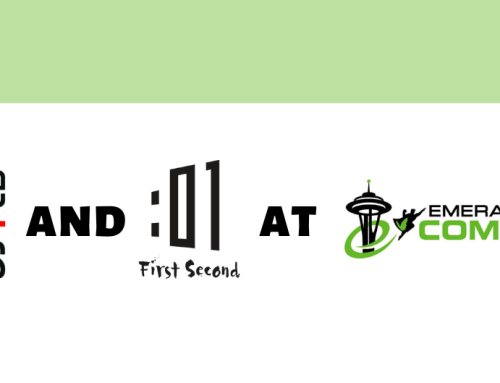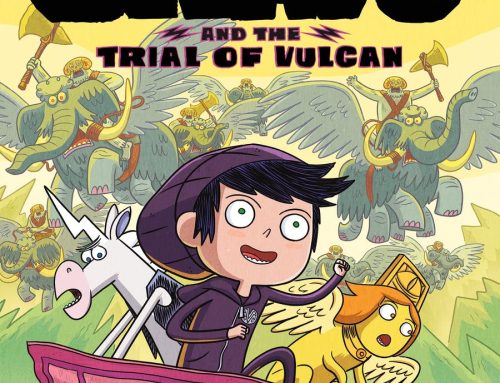Meet Charise Mericle Harper and Rory Lucey, creators of Bad Sister!
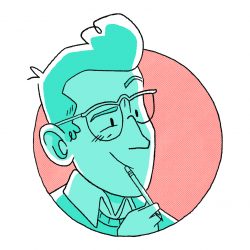
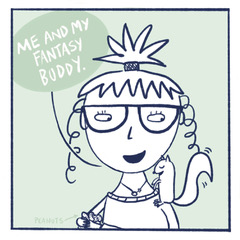
What initially drew you to comics?
Charise: My father is French, and his mother, my grandmother did not speak English. She lived with us for six months every year, so it wasn’t long before my brother and I became fluent in French. Our parents wanted us to learn to read and write as well, so they bought us French comics. Not many kids get ordered to read comic books, but we did. Asterix and Tintin were my first comics, and I loved them. It was a great way to learn to read another language, and each time through the book, I’d understand a little more of the story. The humorous characters were my favorite, they kept me engaged and re-reading — probably hundreds of times.
Rory: Before I ever made comics I loved reading them. I would read and re-read Calvin and Hobbes, laughing at the jokes and then pouring over the pages, absorbing how Bill Watterson used the space, color, and line. As my own art developed, I would use the language of comics as decoration in paintings and prints, but it took me far too long to draw a comic on its own. Figuring out how to best make comics is still an experimental process for me, so I am inspired by the breadth of stories and styles in comics and graphic novels today. I hope the stories I draw inspire others half as much as the art of others has inspired me!
What was your inspiration behind Bad Sister?
C: GUILT!?
I have been thinking about writing this book for years. When my children were little, I was careful to watch my own daughter for any Bad Sister tendencies, but there were none. She was, and continues to be a wonderful sister. My son is lucky. My brother was not.
I wanted to share this story with young readers, because as a child, I felt defined by my mistakes. I played them over and over in my head. I worried I would be bad forever, but that wasn’t true. The changes we make to overcome our mistakes- these are a much better measure of character. I wish I had known that. Ultimately, it’s a book about perspective and hope.
R: From a personal perspective, I’m the third of four kids and the youngest brother in my family. I related to so much of the story that Charise has told and can still remember all of the visceral emotions of being small and how upset my brother could make me or how excited I was when I could make him laugh. Those feelings never go away and Charise does such an extraordinary job of communicating all of those feelings and impulses.
What scene or panel sequence did you most enjoy working on?
C: I liked working of the scenes where my brother and I were joyful and engaged in kid fun. The dumpster scene is one of my favorites. Both of us happy together and on equal footing was a rarity. It was relief to be unburdened as the older sister and instead, just be a pal. Those are the
moments where I felt real appreciation for my brother. I also liked the scene where I’m giving my brother a ride on my legs. I remember the excitement I felt, how it seemed like such a great idea – until it wasn’t.
R: There are so many pages and panels that I loved putting on paper, but one thing I really appreciated throughout the book making process was how collaborative it was and the chapter headers are a perfect example of this. In her script, Charise described what the characters would be doing for each chapter break, since it would be a table setting for the chapter ahead. When I was sketching the chapter headings, I suggested the idea of polaroids as a way of framing the scenes. And our incredible book designer, Molly, thought to include the doodles from the endpapers into the pages—as if Charise the character were drawing around the photos—to connect these different visual elements together. I love how the photos and doodles connect to the story and especially love that at the end of the book we can see a photo of the real Charise and Daniel next to their cartoon selves.
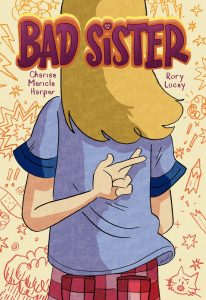 About the Book
About the Book
Meet Charise.
She’s energetic, helpful, a model pet owner and full of inventions.
But she’s also a bad sister. When she goes too far and breaks little brother Daniel’s tooth, can she redeem herself? Is an accident really an accident if you could have stopped it?
But most importantly… What does it mean to be a good sister?


